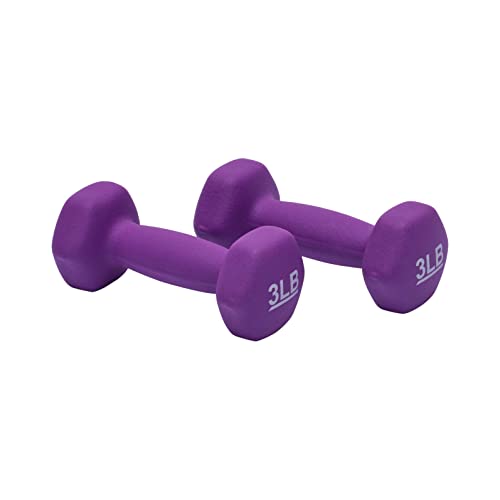Have you ever felt the urge to push past your limits and discover what your body is truly capable of achieving? Unleashing your strength through weight training holds the key to unlocking a world of physical and mental transformation. As you embark on this journey, prepare to uncover the secrets behind maximizing your muscle gains, boosting your strength levels, and sculpting a physique that reflects your dedication. Stay tuned to uncover the secrets that will revolutionize your approach to fitness and empower you to reach new heights of strength and vitality.
Key Takeaways
- Weight training builds strength and muscle mass effectively for beginners.
- Benefits include improved posture, muscle maintenance, and preventing muscle loss.
- Techniques like compound exercises and drop sets enhance training intensity.
- Understanding terms like hypertrophy and concepts like progressive resistance is essential for effective weight training.
Benefits of Weight Training
Discover the numerous advantages weight training offers for your overall health and well-being. Engaging in weight training not only leads to impressive physical transformations but also cultivates mental resilience. As you progress through your weight training journey, you’ll witness your body becoming stronger, leaner, and more defined. This physical transformation is not just about aesthetics; it signifies your dedication and commitment to self-improvement. Moreover, weight training enhances your mental resilience by challenging you to push past limits, both physically and mentally. The discipline required for consistent weight training sessions translates into other areas of your life, fostering a resilient mindset that can overcome obstacles and setbacks. Embrace the holistic benefits of weight training, and witness how it shapes not only your body but also your mind.
Weight Training Techniques
Exploring essential weight training techniques involves mastering various movements and concepts to optimize your strength and muscle-building potential effectively. When delving into weight training, pay close attention to the following key elements:
- Eccentric Movements: Focus on the lowering phase of exercises to maximize muscle fiber engagement and stimulate growth through controlled resistance.
- Isotonic Exercises: Incorporate isotonic movements where the muscle length changes during contraction, promoting functional strength and muscle development.
- Proper Form: Ensure precise execution of each exercise to target specific muscle groups effectively, prevent injuries, and enhance overall performance.
Mastering these techniques will elevate your weight training regimen, leading to increased strength gains and muscle definition.
Importance of Strength Training
When considering the significance of strength training, it becomes evident that mastering essential techniques is crucial for optimizing muscle-building potential and overall physical performance. Strength training plays a vital role in increasing endurance, allowing you to push through physical challenges with greater ease. By engaging in regular strength training, you not only build muscle but also develop a resilient body that is less prone to injuries. The focus on proper form and technique in strength training not only enhances your muscle strength but also contributes to injury prevention by ensuring that your body moves efficiently and safely during workouts. Embrace the importance of strength training as a cornerstone of your fitness journey, paving the way for improved performance and longevity.

Strength Training Workouts
To optimize your muscle-building potential and enhance your physical performance, incorporating strength training workouts into your routine is essential. Here are three key components to consider:
- Resistance Bands: Utilize resistance bands in your workouts to add variety and challenge to your exercises. They provide a different type of resistance that can help improve strength and stability.
- Plyometric Exercises: Include plyometric exercises like box jumps and jump squats to enhance power and explosiveness. These dynamic movements engage fast-twitch muscle fibers, boosting overall athletic performance.
- Varied Intensity: Incorporate a mix of high-intensity intervals and lower-intensity recovery periods into your strength training sessions. This variation helps improve endurance, cardiovascular health, and overall fitness levels.
Weight Training for Beginners
To begin your journey into weight training as a beginner, it is crucial to understand the foundational principles and exercises that will set a solid groundwork for your future progress and success in building strength and muscle mass. Incorporating functional movements into your routine will not only enhance your daily life activities but also improve your overall strength and coordination. It’s important to address weightlifting misconceptions, such as the idea that weight training will automatically result in bulking up. For beginners, focus on compound exercises that engage multiple muscle groups, gradually increasing intensity over time. By starting with a strong foundation and dispelling common myths, you pave the way for a successful weight training journey filled with growth and achievement.
Advanced Training Considerations
Exploring advanced weight training considerations involves delving into specialized techniques and strategies to optimize your strength and muscle-building regimen. To elevate your training to the next level, consider the following:
- Incorporate Advanced Restoration Methods: Utilize techniques such as active recovery, foam rolling, and mobility work to enhance muscle repair and reduce soreness.
- Implement Strategic Recovery Strategies: Focus on adequate sleep, proper nutrition, and hydration to support muscle growth and overall performance.
- Periodize Training for Optimal Results: Plan training cycles with varying intensities, volumes, and rest periods to prevent plateaus and maximize gains.
Functional Training Benefits
As you advance in your weight training journey, understanding the benefits of functional training can significantly enhance your overall fitness goals. Functional training focuses on exercises that mimic everyday movements, improving your strength, balance, and flexibility for real-life activities. Check out some functional training examples and exercises in the table below:
| Functional Training Examples | Functional Training Exercises |
|---|---|
| Squats | Squat to Press |
| Lunges | Single Leg Deadlift |
| Push-ups | Plank Rows |
| Deadlifts | Farmer’s Walk |
These exercises engage multiple muscle groups simultaneously, enhancing your coordination and stability. Incorporating functional training into your routine can help you perform better in daily tasks and prevent injuries.
Weight Training Tips
Incorporate these effective weight training tips to maximize your strength and muscle-building efforts.
- Injury Prevention Strategies: Prioritize proper warm-ups, stretching, and cooldowns to reduce the risk of injuries during weight training sessions.
- Nutrition for Strength: Fuel your body with a balanced diet rich in protein, carbohydrates, and healthy fats to support muscle growth and recovery.
- Hydration: Stay hydrated before, during, and after your workouts to maintain optimal performance and aid in muscle repair.
Muscle Building Concepts
To enhance your muscle-building efforts effectively, understanding key concepts in weight training is essential. Two fundamental concepts for maximizing muscle growth are progressive overload and muscle hypertrophy. Progressive overload involves gradually increasing the stress placed on muscles during exercise to stimulate strength and muscle gains. Muscle hypertrophy is the process of muscle growth in response to resistance training. By consistently challenging your muscles with heavier weights and increasing the intensity of your workouts, you can promote muscle hypertrophy and overall strength development. Below is a table summarizing these essential muscle-building concepts:
| Muscle Building Concepts | Description |
|---|---|
| Progressive Overload | Gradually increasing the stress on muscles to stimulate growth. |
| Muscle Hypertrophy | Process of muscle growth in response to resistance training. |
Weight Training Progression
Begin your weight training progression by establishing a solid foundation with proper form and technique. To maximize strength gains and ensure efficient progression, consider the following strategies:
- Progressive Overload: Gradually increase the weight you lift to continuously challenge your muscles and stimulate growth.
- Periodization: Implement a structured plan that varies intensity, volume, and exercises to prevent plateaus and optimize results.
- Tracking and Adjusting: Keep a detailed record of your workouts, including weights, reps, and sets, to track progress and make necessary adjustments for continual improvement.

Conclusion
Now that you have the essential knowledge and tools to start your weight training journey, it’s time to take action and unleash your inner strength. By incorporating these techniques and workouts into your routine, you can build muscle, increase strength, and improve your overall well-being. Remember to focus on proper form, challenge yourself with functional movements, and stay consistent in your efforts. With dedication and determination, you can achieve your fitness goals and transform your body. Let’s do this!

Q: How Can Weight Training Help Improve Mental Health and Overall Well-Being?
Weight training aids in improving mental health and overall well-being through the mind-body connection and enhanced emotional resilience. By engaging in weight training, you can strengthen not just your muscles but also your mental fortitude. The discipline and focus required can help you manage stress, boost confidence, and develop a positive outlook on life. Cultivating a strong body leads to a strong mind, fostering a sense of balance and well-being.
Q: Are There Specific Dietary Recommendations or Supplements That Can Enhance the Benefits of Weight Training?
To enhance weight training benefits, focus on a solid nutrition strategy. Fuel your body with adequate protein for muscle recovery and growth. Consider performance supplements to boost your workouts. Remember, what you eat plays a crucial role in your progress. Prioritize protein intake and explore supplements wisely to maximize your training gains. Stay dedicated to your nutrition plan for optimal results in your weight training journey.
Q: What Are Some Common Mistakes to Avoid When Starting a Weight Training Program?
When starting a weight training program, avoid common mistakes by prioritizing proper form to prevent injuries. Consistency in your routine is key for progress and results. Remember to start with lighter weights to focus on technique and gradually increase the resistance. Don’t skip warm-ups or cool-downs, as they are vital for injury prevention and muscle recovery. Stay patient and listen to your body’s needs to build a strong foundation for your fitness journey.
Q: How Does Age Impact the Effectiveness of Weight Training and Muscle Building?
As you age, muscle responses to weight training can slow down due to age-related challenges like decreased muscle mass and strength. Hormonal changes can affect muscle building, requiring training adjustments such as more recovery time and tailored workout plans. By understanding these factors and making necessary adaptations, you can continue to progress and maintain muscle mass effectively as you get older. Prioritize smart training choices and listen to your body for optimal results.
Q: Can Weight Training Be Adapted for Individuals With Injuries or Physical Limitations?
Weight training can definitely be adapted for individuals with injuries or physical limitations. Adaptive modifications and personalized adjustments are key to tailor workouts to your specific needs. By focusing on proper form, lighter weights, and specialized exercises, you can still build strength and improve your overall fitness level safely. It’s important to work with a knowledgeable trainer or physical therapist to create a program that suits your individual situation and goals.





































